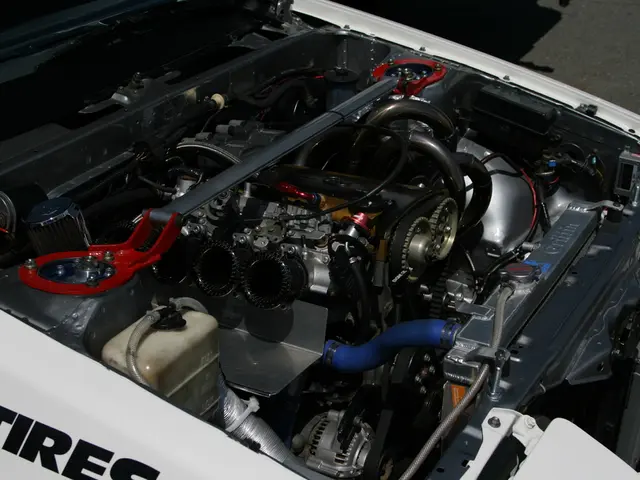Competition between ASML, dominant player, and Besi-share, packaging heavyweight
In the dynamic world of technology, two names often come up when discussing the semiconductor industry - ASML and BESI (BE Semiconductor Industries). Both companies play significant roles in the sector, but their focus and strategies differ, offering unique opportunities for investors.
ASML, with a market capitalization of approximately €282.76 billion, is a towering figure in the global tech sector. As the world's sole manufacturer of EUV lithography systems, it holds a crucial position in producing essential equipment for modern AI chips, data center processors, and premium smartphone chips. Its technological superiority grants it immense pricing power and a wide moat around its business.
On the other hand, BESI, with a market capitalization of approximately €9.21 billion, is a leading company in the critical endgame of semiconductor assembly. It focuses on the growth niche of advanced packaging, a sector that may offer greater upside potential compared to ASML. BESI's efficient business model, with outsourced manufacturing and a significant presence in Asia, enables consistently high gross margins of over 60%.
While ASML's revenue is significantly higher, BESI's focused business model gives it superior profitability metrics. The company's hybrid bonding technology could lead to a significant expansion of its valuation multiple once the market recognizes its central role, particularly in the adoption of chiplet architectures in Advanced Computing, where the market is expected to grow at an annual rate of over 15%.
In terms of financial metrics, ASML's P/E (TTM) ranges from 30.4x to 36.9x, while BESI's P/E (TTM) ranges from 53.5x to 56.9x. The choice between the two depends on individual risk profiles, with ASML being a safe choice for conservative investors and BESI offering potential greater upside.
The growing importance of advanced packaging significantly increases BESI's strategic importance in the industry. Companies active in this sector include KLA Corporation, which specializes in semiconductor materials and equipment, providing technologies for advanced packaging processes in the semiconductor sector. Other relevant companies often develop solutions in dosing, filling, and packaging systems for various industries such as consumer goods, life sciences, and pharmaceuticals, exemplified by companies like Optima Packaging, which develops advanced filling and packaging technologies globally.
In the symbiotic growth scenario, both ASML and BESI perform well, with BESI potentially growing faster percentage-wise due to its smaller base and exposure to a growth niche. However, the latest ASML numbers suggest urgent action may be required for ASML shareholders. On the other hand, BESI's 1-year performance is approximately +3.6% to 7.5%, offering a more promising outlook for those invested in the company.
In the scenario where packaging becomes paramount, BESI's hybrid bonding technology could lead to a significant expansion of its valuation multiple once the market recognizes its central role. The latest developments in the semiconductor industry underscore the importance of understanding the nuances between companies like ASML and BESI, offering investors a chance to make informed decisions based on the unique opportunities each company presents.







